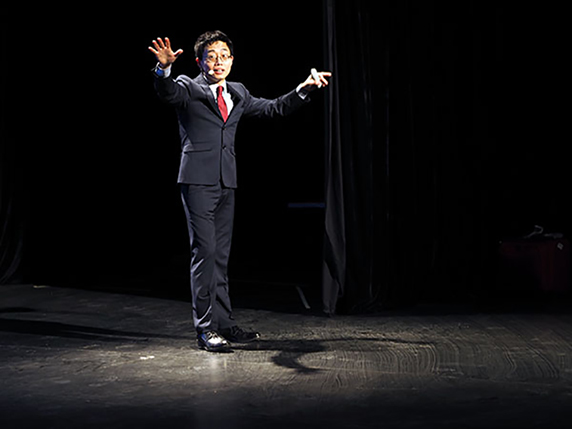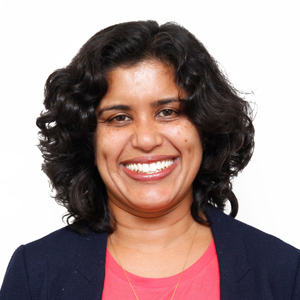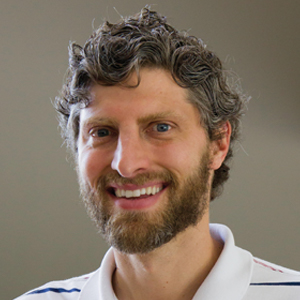So, a biochemist walks into a comedy club …'
Many people have poked fun at Vice President Joe Biden. But at the 2010 Radio and Television Correspondents Association Dinner in Washington, D.C., there was something decidedly unique about the person roasting Biden.
“I actually read your autobiography,” comedian Joe Wong told Biden. “Today, I see you. I think the book is much better.”

Wong has performed on American talk shows and hosts his own TV show in ChinaJoe Wong
It wasn’t the jokes or the straitlaced delivery that stood out but rather the fact that Wong isn’t your typical comedian. He has an advanced degree in biochemistry, something that none of the previous hosts of the swanky black-tie event, including Wayne Brady and Don Imus, can lay claim to.
How did a Chinese immigrant who once studied neurotransmitters in fruit flies wind up on stage telling jokes at the expense of the second-highest ranking U.S. official? According to Wong, delivering jokes and getting data have more in common than one would think.
“In science, you have to fail so many times,” he says. “I’ve learned to deal with failure. That’s very important. A lot of people try stand-up comedy. They do a bunch of jokes, and if things didn’t work out, they get really frustrated. They give up.”
Wong readily acknowledges that the transition from biochemist to comedian is “not very direct.” Growing up in mainland China, Wong recalls, “I grasped American humor early for some reason.” He counted Woody Allen and George Carlin among his comedy idols.
While in college in China, Wong says, “Some of my classmates were trying to read jokes off Reader’s Digest. They understood every word in the joke. But they didn’t understand why it was so funny. I had to explain to them why this joke was funny.”
Though his adeptness at American humor may have set him apart from his Chinese peers, Wong stuck to a more traditional career path at first. He enrolled at the Chinese Academy of Sciences to study molecular biology and in 1994 moved to the U.S. as a graduate student at Rice University. After earning his Ph.D. in 2000, Wong joined a startup company that didn’t survive long, so he next moved to Boston for a job at Sanofi Aventis.
The change of scenery gave Wong the chance to “explore different things and hobbies,” as he puts it. “I played a little golf. Then I took a stand-up comedy class.” With that class, a change in careers began. Wong fine-tuned his routines in clubs around Boston, struggling to get noticed. “After you do this for about seven or eight years, gradually, you know your own style, and at that point, it’s a little bit easier,” he says.
His perseverance paid off in 2010 when Wong was named Boston Comedian of the Year and won recognition at the Great American Comedy Festival.
 Former biochemist Joe Wong is now a larger-than-life comedian.Images provided by Joe Wong
Former biochemist Joe Wong is now a larger-than-life comedian.Images provided by Joe Wong
Catapulted to stardom, Wong has made numerous memorable appearances, including ones on “The Ellen DeGeneres Show” and “The Late Show with David Letterman,” along with his gig at the correspondents’ dinner, which he considers a career highlight.
“Growing up, I could never imagine comedy could be used to talk about so many different topics, from philosophy to politics,” says Wong. “In China, you can’t joke about political leaders, that’s for sure.”
The ability Wong showed in adroitly tweaking Biden that night is a good example of how engrained he has become in American culture and society, something he chalks up to effort. Even as a graduate student, he says, he worked hard to be plugged into mainstream America, reading novels while experiments ran “to get to know the American society a little bit better.”
Such in-depth knowledge of how America functions has been important for Wong, because audiences in the U.S. and China latch onto different things as funny. “Every country has different rules,” he says. “You have to know how people live.” In the U.S., Wong stays away from jokes about public transportation, because most people drive their own cars. But in China, “jokes about the subway are really popular,” he says.
Wong keeps his scientific training hidden during his routines and sticks to more general topics. “As soon as people know I have a degree in biochemistry, they tune out,” he says. But Wong notes with some satisfaction that he once managed to get a joke about nitric oxide out on Letterman.
Nowadays, Wong is busy doing gigs around Beijing and hosting his own show on Chinese television called “Is It True?” Watched by 5 million to 7 million viewers each week, the show offers a smorgasbord of comedy and investigative reporting and is, according to Wong, the highest rated one for the network that carries it. He also makes guest appearances in plays or other TV shows and does comedy routines at corporate events, schools and comedy clubs. His wife, who used to be a financial manager at Fidelity Investments in the U.S., now manages his career.
Having left a relatively tame scientific career for the roller-coaster life of a comedian, Wong emphasizes that “it’s important for people who want to do something slightly different in science” not to be afraid to take a chance. For once, he isn’t joking.
Enjoy reading ASBMB Today?
Become a member to receive the print edition four times a year and the digital edition monthly.
Learn moreGet the latest from ASBMB Today
Enter your email address, and we’ll send you a weekly email with recent articles, interviews and more.
Latest in People
People highlights or most popular articles

From humble beginnings to unlocking lysosomal secrets
Monther Abu–Remaileh will receive the ASBMB’s 2026 Walter A. Shaw Young Investigator Award in Lipid Research at the ASBMB Annual Meeting, March 7-10 in Washington, D.C.

Chemistry meets biology to thwart parasites
Margaret Phillips will receive the Alice and C. C. Wang Award in Molecular Parasitology at the ASBMB Annual Meeting, March 7-10 in Washington, D.C.

ASBMB announces 2026 JBC/Tabor awardees
The seven awardees are first authors of outstanding papers published in 2025 in the Journal of Biological Chemistry.

Decoding how bacteria flip host’s molecular switches
Kim Orth will receive the Earl and Thressa Stadtman Distinguished Scientists Award at the ASBMB Annual Meeting, March 7–10, just outside of Washington, D.C.

Thiam elected to EMBO
He was recognized during the EMBO Members’ Meeting in Heidelberg, Germany, in October.

The timekeepers of proteostasis
Learn about the cover of the winter 2026 ASBMB Today issue, illustrated by ASBMB member Megan Mitchem.


